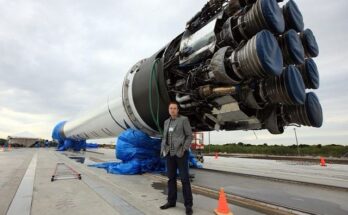
In a deeply unsettling turn of events, a rocket struck near Ben Gurion International Airport (TLV), Israel’s primary international gateway, sending shockwaves across the region and raising new concerns about the escalation of regional conflict. The attack, which occurred on a busy weekday afternoon, prompted emergency protocols at the airport and temporarily disrupted air traffic, although no direct hit was reported on the airport premises.
According to Israeli authorities, the rocket was part of a broader barrage launched from the Gaza Strip amidst rising hostilities between Israel and militant groups. The projectile landed in an open field approximately 2.5 kilometers from the main terminal — close enough to trigger alarms but far enough to avoid direct structural damage or casualties at the airport itself.
While no injuries were reported from the strike near the airport, the psychological impact was immediate. Video footage from the scene shows airport staff and travelers taking cover as air raid sirens blared. Departing flights were briefly suspended, and several incoming flights were diverted to alternative airports, including Ramon Airport in southern Israel.

“We heard the sirens and then a loud thud — it felt close, too close,” said Ruth Elbaum, an airline employee who was working at a departure gate when the alarms sounded. “We’ve had drills for situations like this, but when it’s real, everything feels different.”
Passengers described a tense scene inside the terminal as security officers ushered them into designated shelters. Families with children huddled together, unsure of what was happening outside. Foreign tourists unfamiliar with Israel’s emergency protocols expressed confusion and fear, while local travelers attempted to calm those around them.
Israeli defense forces (IDF) responded swiftly, launching airstrikes against targets in Gaza just hours after the rocket strike. In a statement, the IDF confirmed that the rocket came from a known launch site used by militant factions in the Strip. “We take any threat to Israeli civilian infrastructure seriously, and the attempted targeting of a major civilian airport crosses a red line,” said an IDF spokesperson.
This is not the first time that Ben Gurion Airport has come under threat during times of conflict. In 2014, during Operation Protective Edge, the U.S. Federal Aviation Administration temporarily suspended flights to and from TLV after a Hamas-fired rocket landed near the facility. That incident caused a ripple effect across the global aviation industry, highlighting the vulnerability of civilian infrastructure in conflict zones.
Security experts say the latest incident is especially concerning due to the strategic significance of Ben Gurion Airport. Located just outside Tel Aviv, the airport is a vital link between Israel and the outside world, handling tens of thousands of passengers daily and serving as a critical hub for both tourism and commerce.
“Any disruption to TLV isn’t just a domestic issue — it’s an international one,” said Dr. Lior Ben-Ami, a former military strategist and now a defense analyst. “Militant groups understand this, which is why they sometimes attempt to strike near or around the airport. It’s about sending a message, sowing fear, and gaining visibility on the global stage.”
In the wake of the attack, Israel’s Civil Aviation Authority worked quickly to resume operations, assuring the public that all necessary safety protocols had been followed. By the evening, most flight schedules were back on track, though some delays continued due to re-routing and increased security screening.
International reactions were swift. The United States condemned the rocket attack, calling it “an unacceptable escalation that endangers innocent civilians and vital infrastructure.” The European Union issued a similar statement, urging both sides to de-escalate tensions and avoid further targeting of civilian areas.

Meanwhile, inside Israel, political leaders from across the spectrum united in their condemnation of the strike. Prime Minister Daniel Regev addressed the nation in a televised statement, saying, “We will not tolerate any attack on our transportation infrastructure. Ben Gurion Airport is not just an airport — it is a symbol of Israel’s resilience, openness, and global connection.”
While calm has tentatively returned to the area around TLV, the strike has reignited debates about the security of Israel’s critical infrastructure. Experts are calling for further investment in missile defense systems like Iron Dome, which reportedly intercepted several other rockets during the same barrage. They are also urging increased coordination between military and civilian sectors to ensure that airports remain protected under all circumstances.
For travelers, however, the events of the day remain vivid.
“I’ll never forget the fear I felt when the sirens went off,” said Sarah Lewis, a tourist from Canada. “But I also saw how calm and organized the response was. The staff knew exactly what to do. That gave me confidence.”
As tensions simmer across the region, incidents like the rocket strike near Ben Gurion Airport serve as stark reminders of the fragile line between everyday life and crisis in the Middle East — and the extraordinary resilience required to carry on.


